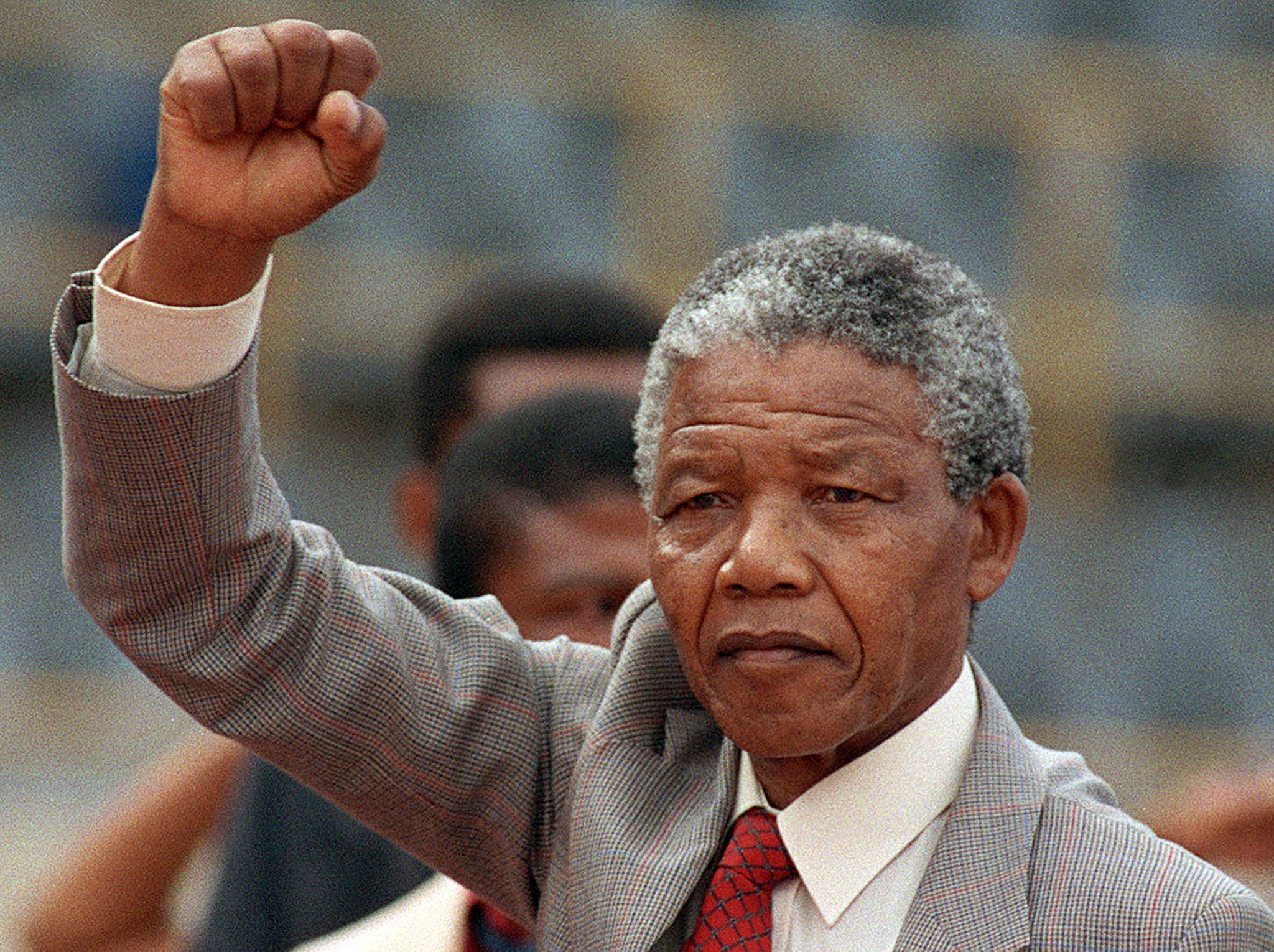The battle for Mandela’s legacy is only beginning
Even before Mandela’s illness, the political parties of South Africa were at loggerheads over their versions of the anti-apartheid struggle. Now the struggle is intensifying

The roads surrounding Pretoria’s Mediclinic Heart Hospital resemble a giant nomadic camp of white gazebos. Underneath them herds of photographers are gathered day and night, zoom lenses trained on the entrance, taking the same pictures of the hospital gates, again, and again, and again. Next to them well-dressed reporters shout into mobile phones, fingers hovering over lap tops linked to radio vans, filing their usual report: that they are waiting for something to happen.
In some ways it already has. Pretoria was once a symbol and stronghold of white racist power in the country and on the continent. Now white and black journalists stand side by side. Together, they wait anxiously and respectfully for news on the health of the man who more than any other symbolizes the struggle against apartheid in South Africa: Nelson Mandela.
Once dismissed by parts of the media as a terrorist, Mandela has now been elevated to near religious levels of reverence - despite his frequent protests that he is only a man, rather than a prophet. The message doesn’t seem to have got through. One person I speak to calls him South Africa’s answer to Moses. Streets are named after him, statues are dotted around the country, his face graces the country’s bank notes and at the country’s largest Catholic Church, his image appears in stained glass.
Already newspapers across the world are filling up with stories of the movement against apartheid that Mandela represents. But how these tales are told will have a profound impact on the present. Even before Mandela’s illness, the political parties of South Africa were at loggerheads over their versions of the anti-apartheid struggle. Now the struggle for history is intensifying.
For the ruling African National Congress, their link to Mandela and the anti-apartheid struggle is a prize asset, which they remind voters of whenever they can. In the course of making a documentary about the politics of post-apartheid South Africa I recently found myself part of a press pack following President Zuma, going from house to house in the historic Soweto township of Orlando West, past the house Mandela lived in before he was imprisoned, and culminating at the Hector Pieterson Memorial - a fountain erected close to the spot where the apartheid police killed the first schoolchild of the Soweto Uprising of 1976. Bestriding the running water of the memorial, the President milked the location to its full effect. After wishing Mandela well, he continued with a contrived analogy linking the historic struggle against apartheid to the government’s present day ‘war on drugs’.
The opposition Democratic Alliance (DA) too, are focusing on the past. Their impossible-to-miss, expensive-looking advertising billboards champion their predecessors’ opposition to pass laws and ID cards –presumably in response to the ANC’s efforts to paint them as an apartheid party. As a result, Helen Suzman – once apartheid’s only parliamentary opponent – forms a far more prominent part of the DA’s campaign than the party’s present day leader.
The struggle for history is also played out on the streets. On the anniversary of the Soweto Uprising, there were no less than eight different marches and events across Soweto organized from different perspectives. At the Maurice Isaacson school, where one of the marches started in 1976 I found two groups preparing to follow exactly the same route at more or less the same time. One consisted of supporters of the ANC, the other– The Democratic Left Front – was there to commemorate the martyrs of a struggle against a structure they consider to be still basically in still in place. Their leaflets compare last year’s massacre of striking mineworkers in Marikana by the current government to the slaying of schoolchildren under apartheid. Although one group was chanting for Jacob Zuma, the other against, both saw themselves as embodying the spirit of the struggle against apartheid.
As Mandela lies in hospital, the ongoing struggle for the story of past shifts to maneuverings over who should occupy his legacy. The Democratic Alliance pay their respects, but seek to draw a distinction between the government of Mandela and the governments of his successors. In contrast Zuma declares that to love Madiba is to love everything he stood for, including the political party of which he was the most famous leader. Neither is being cynical. Perhaps the most important characteristic of being a unifying figure for a nation, is the ability to symbolize different things for different people.
With apartheid and the sacrifices made in the struggle against it still living memory for much of the population, the debates about how the past influence the present seem unlikely to go away soon. But in a way the debates are part of Mandela’s legacy. Even though the political groups argue, and the present day problems they highlight are real, they take place in the context of a country which is basically democratic, where civil liberties are granted in the constitution. While none will ever fill Mandela’s shoes, the next generation has at least been imbued with the starting blocks for the next step in the country’s long walk to freedom.

Join our commenting forum
Join thought-provoking conversations, follow other Independent readers and see their replies